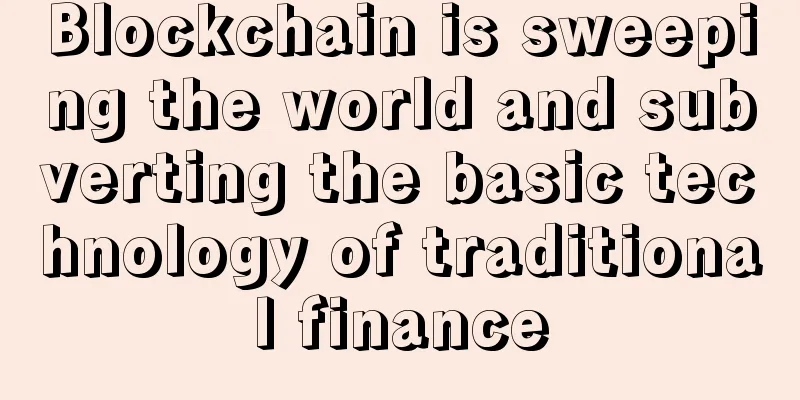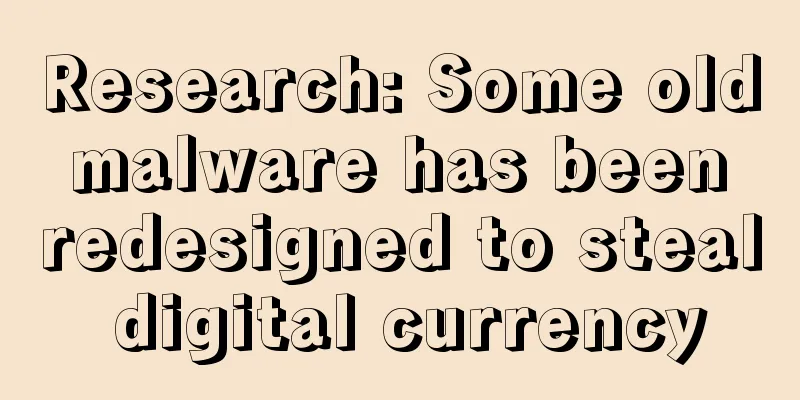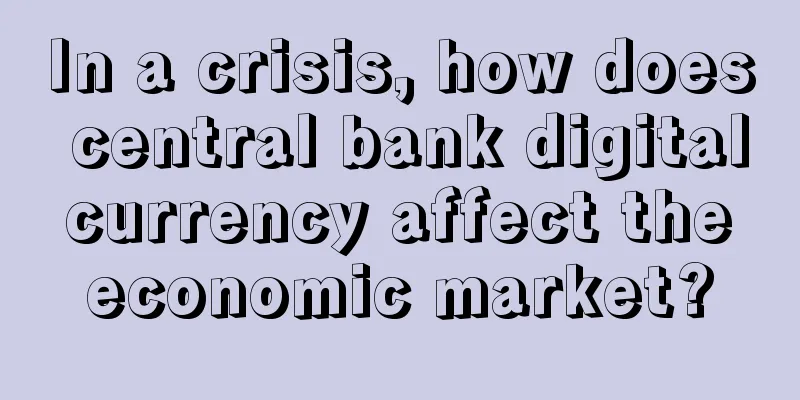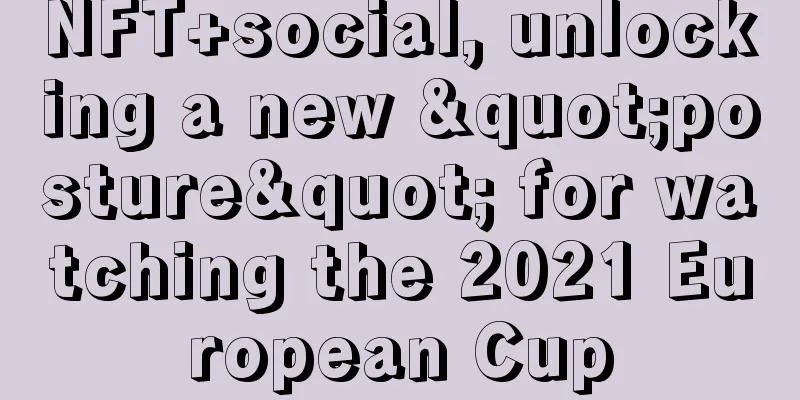|
Blockchain: A fundamental technology that subverts traditional finance
Abstract: Technology is changing the world. FinTech is reshaping the financial industry. Compared with it, blockchain technology, which is more disruptive, is increasingly attracting attention from all countries. At present, blockchain technology is still in the experimental stage. China should provide policy, financial and talent support for the research of this technology in order to win a new round of innovation dividends.
Blockchain technology is all the rage around the world. In June this year, the U.S. Department of Homeland Security (DHS) announced a grant of $199,000 to blockchain startup Factom because the company has figured out how to use blockchain technology to ensure camera security and can be used to monitor U.S. borders. Although its main use is for the Internet of Things and data security, DHS Data Privacy Project Manager Anil John still emphasized that he is very interested in continuing to study the advantages and potential disadvantages of blockchain technology.
When talking about blockchain, we have to mention FinTech. FinTech stands for financial technology, and Internet finance is its pronoun in China. Under the conditions of domestic financial repression and insufficient financial supply, it has further evolved into P2P, third-party payment and crowdfunding. However, Internet finance refers more to a business model, while FinTech represents a broader range of science and technology.
As the government's regulation of Internet finance becomes increasingly stringent, we will return the topic to its original point and analyze it from a technical perspective, which may make it easier to find a breakthrough in Internet finance.
FinTech Reshapes Finance
In its March 2016 report “Blurred Lines: How Fintech Reshapes the Financial Industry”, PwC summarized the impact of FinTech on the financial industry into seven points:
1. FinTech is reshaping financial services from the inside out.
2. Fintech is benefiting where traditional financial institutions cannot
3. The strongest point of FinTech is that it weakens third-party intermediaries as much as possible
4. Traditional financial services have gradually been threatened by FinTech
5. Blockchain is rewriting the rules of financial services
6. FinTech continues to cut transaction fees compared to traditional financial services
7. Traditional financial services must be integrated into the financial services ecosystem of FinTech
At the end of the report, PwC pointed out that FinTech has contributed to the disintegration of the traditional financial industry . FinTech has reshaped the way customers participate in company activities by changing the time, place and method of financial services. The success of FinTech lies in its ability to improve customer experience and cater to user needs.
Although the information currently provided by FinTech is somewhat scattered, disordered and obscure, it can certainly promote the aggregation of massive technologies and data. Therefore, it is crucial to filter out the discordant voices of traditional finance in the development of FinTech and focus on its most important development trends, technologies and start-ups. In order to help corporate decision makers solve the problem of oversupply of production materials, what is most needed is to learn from FinTech's efforts in improving user experience, providing personalized services, using complex data analysis to deal with problems, and paying attention to network data security. Obviously, in the Internet era, the characteristics of finance are changing, and the service model is changing. Although the core of risk management we emphasize still belongs to finance, the service model and service form are undergoing qualitative changes. The strength and dominance of traditional finance are gradually weakening. Finance has gradually submerged from completely independent "physical outlets" services to PC and mobile terminals, and is gradually fading out of sight from the physical side. Third-party payment, etc., make finance invisible in the e-commerce scene. The emergence of blockchain is more likely to make the central bank lose the right to "issue banknotes." Although China is carrying out Internet finance regulation in full swing, Fintech's "reshaping" of finance will not stop, and the concept may have to return to Fintech.
Blockchain is taking the world by storm
Currently, blockchain technology is at the top of Fintech. Bitcoin has been running successfully for 8 years, withstood hacker attacks, and its price has continued to rise, and it has been widely accepted around the world. Bitcoin has brought blockchain into the vision of more people. Although Bitcoin is very successful, blockchain technology is still in the laboratory stage. Various blockchain experiments are emerging one after another, and governments around the world have begun to pay attention to blockchain.
Lao Zhang has compiled the research and practice of blockchain technology in some countries for your reference.
European Union
The European Central Bank (ECB) publicly announced in its consultation report "Vision for the Eurosystem - The Future of European Financial Market Infrastructures" that it is exploring how to use blockchain technology for its own benefit.
The executive director of the European Securities and Markets Authority (ESMA) said that blockchain technology can improve post-trading processes. ESMA has spent more than a year studying the impact of digital currencies such as Bitcoin on the EU investment environment.
Netherlands
The Dutch Central Bank (DNB) detailed the pilot project in its annual report published on March 16. The DNB determined that blockchain technology could improve the quality of its business and that DBNCoin is a priority project for the bank’s internal developers this year.
The Netherlands announced that it would establish a blockchain park in September 2016, where banks and financial companies will work together to develop applications of blockchain technology in payment and a wide range of financial fields.
Poland
The Polish Ministry of Digital Affairs is considering using Bitcoin and blockchain technology to further advance the digitalization of government services and taking measures to promote the development of digital currency and blockchain technology. The agency was established in 2015 and is a government agency dedicated to "promoting the digital development of government."
Germany
Germany’s Federal Financial Supervisory Authority (BaFin) is studying the potential applications of distributed ledgers, including cross-border payments, inter-bank transfers and the storage of trade data.
U.K.
Christopher Woolard, director of strategic competition at the UK Financial Conduct Authority (FCA), said in his speech that blockchain technology should now be given some room to develop, so it will not be regulated.
Australia
Tony Richards, head of the Reserve Bank of Australia's payments policy department, said at the 2016 Sydney Innovative Payments Conference that the Australian central bank is conducting research on digital currencies and blockchain payment systems.
Canada
The Bank of Canada has announced that it is developing a digital Canadian dollar based on blockchain. The project, called CAD Coin, is part of the Project Jasper blockchain exploration.
Russia
The Russian Central Bank believes that as more and more financial institutions around the world begin to adopt blockchain technology, blockchain applications will play a very important role in the future financial field.
Japan
Japanese regulators have proposed that digital currencies such as Bitcoin be accepted as a form of payment. In this way, digital currencies will be legally equivalent to traditional Japanese currencies. The Financial Services Agency (FSA) of Japan is considering whether to amend the relevant legal provisions.
South Korea
South Korea’s sole stock exchange, Korea Exchange (KRX), said it is developing an over-the-counter (OTC) trading system using blockchain technology, making it one of the companies exploring the use of blockchain technology in securities trading.
Singapore
Singapore's Foreign Minister Vivian Balakrishnan said in his speech at the opening of the second Innovation and Technology Exhibition that Singapore will create a policy special zone and blockchain companies will not be restricted by existing financial policies.
India
The Reserve Bank of India (RBI) is continuing to research blockchain technology after discussing it in December 2015, according to The Times of India .
China should pay more attention to supporting blockchain
Unlike other countries, the core reason why Fintech is so popular in China is that people hope to use this opportunity to break the dilemma of insufficient financial supply and get a share of the high financial "dividends", which is not disruptive enough. In contrast, blockchain is very disruptive.
Fintech, or China's Internet finance, is currently in a dilemma. This is due to both the lack of "penetrating power" of the technology itself and the slow response of regulators and the lack of supervision, which has led to some illegal operators acting with impunity.
Unlike Fintech, which can develop without government funding, blockchain is a technology-driven change and is still in an experimental state. Technological innovation requires a lot of basic research. The cultivation of social environment, the cultivation of talents, long-term experimental investment, and relaxed commercial application all require national support.
The Chinese government must attach importance to and support the research and development of blockchain technology. Ignoring or coldly treating it will affect its development in China and miss the opportunity to obtain a new round of innovation dividends.
|










